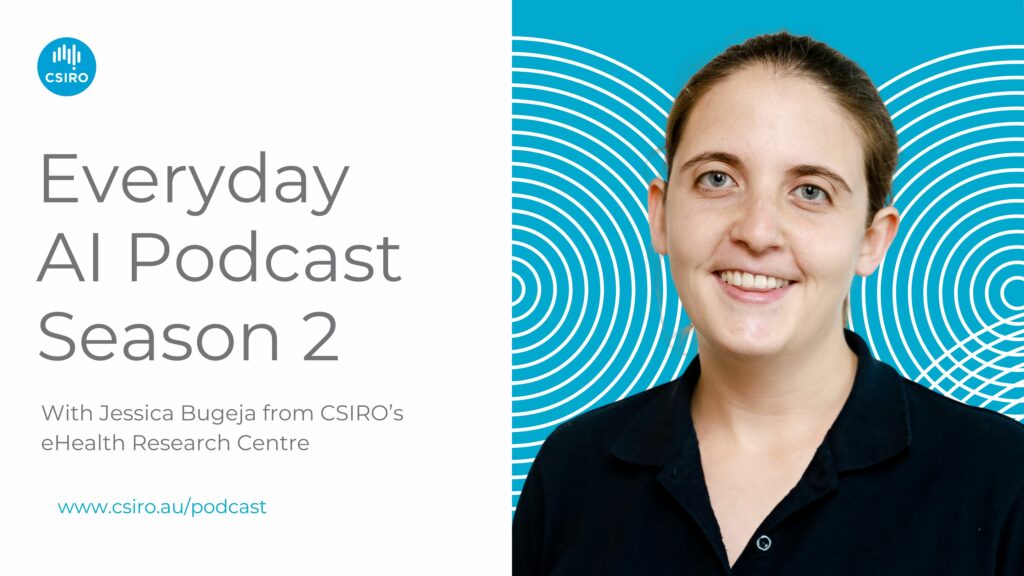The miracle of life and cheating death: AEHRC researchers feature on the Everyday AI podcast
The new season of Everyday AI is out now! We’re extra excited here at AEHRC, because two of our researchers joined host Jon Whittle to discuss the real-world applications of artificial intelligence from the cradle to the grave.
Jess Bugeja kicks things off on the first episode, delving into how AI is transforming the miracle of life. She joins Jon, IVF patient Briony, and fertility specialist Associate Professor Peter Illingworth to explore the use of AI in fertility treatments and explain how we’re using AI to predict the well-being of premature babies.
Jess Bugeja and the Neurodevelopment and Plasticity team are developing tech that can monitor and predict neurodevelopment and cognitive outcomes for premature babies. Using AI, they can take MRI scans of the brain and create models.
“We can extract the brain, turn it around, sort of scroll through it in different directions. Basically, you can see what is happening in every part of it,” Jess says.
The AEHRC returns to the podcast for the final episode, which asks an intriguing question: can AI help us cheat death?
The episode explores AI at the later stages of our lives and beyond. Dana Bradford, who leads the Neurodevelopment and Plasticity team, explains how our brain changes throughout our life.
“Basically, our brains shrink. They get smaller and smaller, and if we have conditions like dementia, they shrink faster,” Dana says.
“AI can help us measure the speed at which the brain shrinks.”
These measurements can facilitate the diagnosis and prognosis of neurodegenerative disorders like Alzheimer’s disease.
All episodes of the new season of Everyday AI are now available. Listen in on all major podcast platforms including Apple Podcasts, Spotify, YouTube or via RSS feed.
The Australian e-Health Research Centre (AEHRC) is CSIRO's digital health research program and a joint venture between CSIRO and the Queensland Government. The AEHRC works with state and federal health agencies, clinical research groups and health businesses around Australia.

